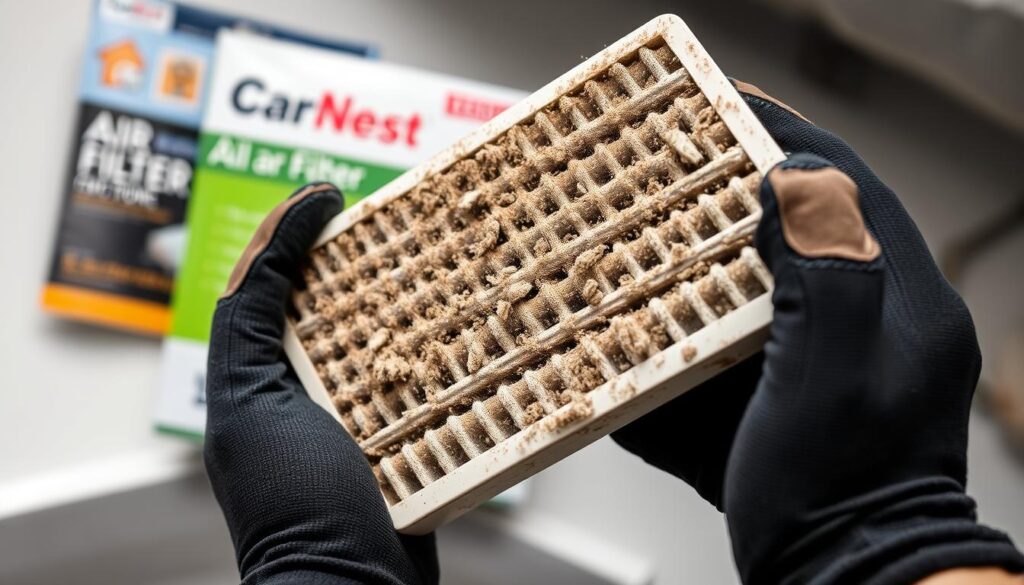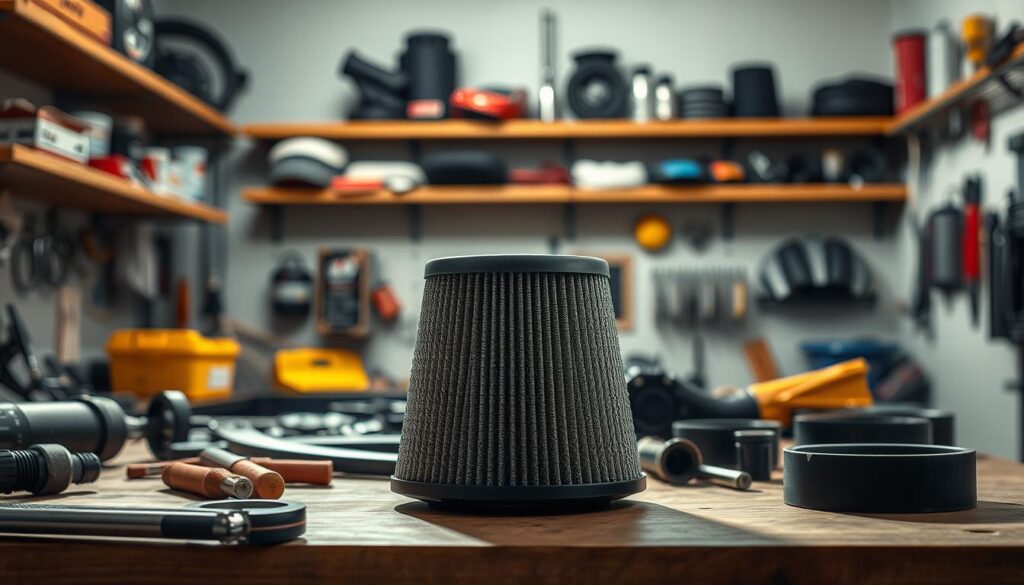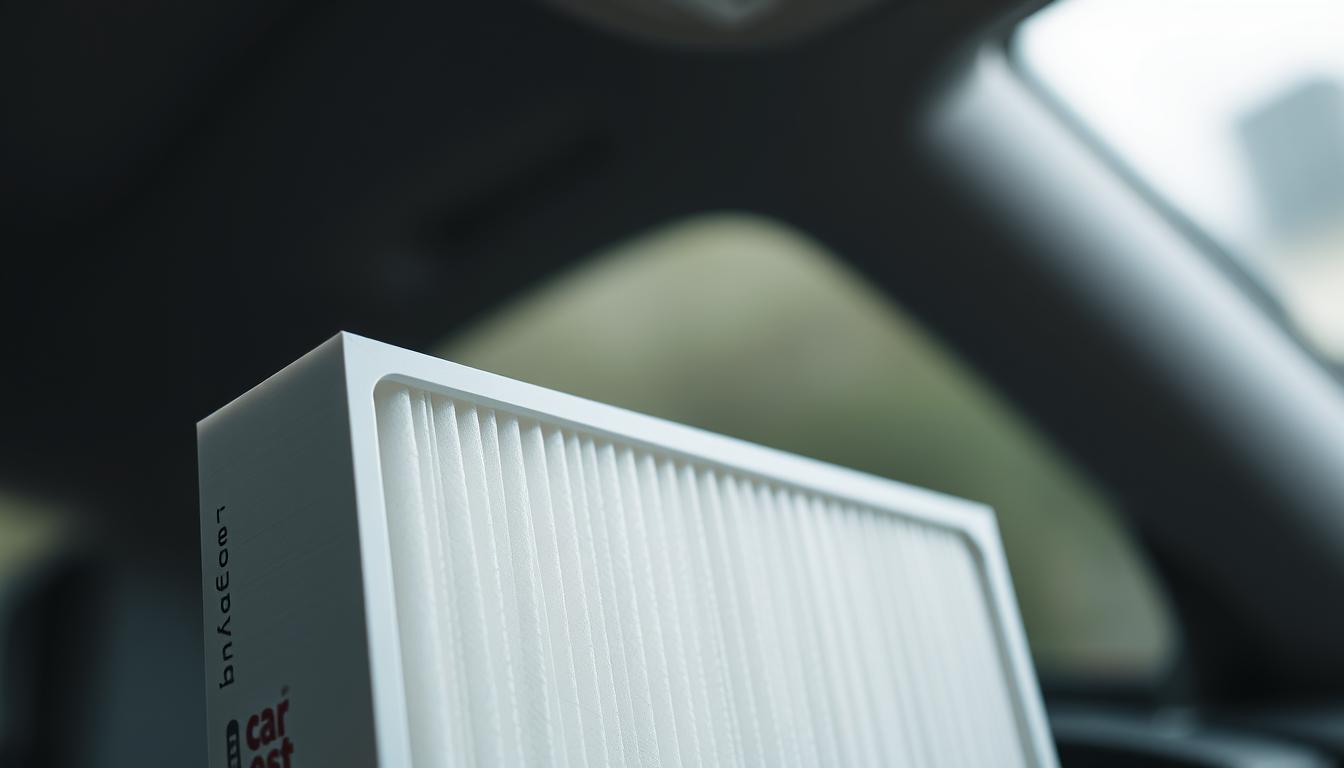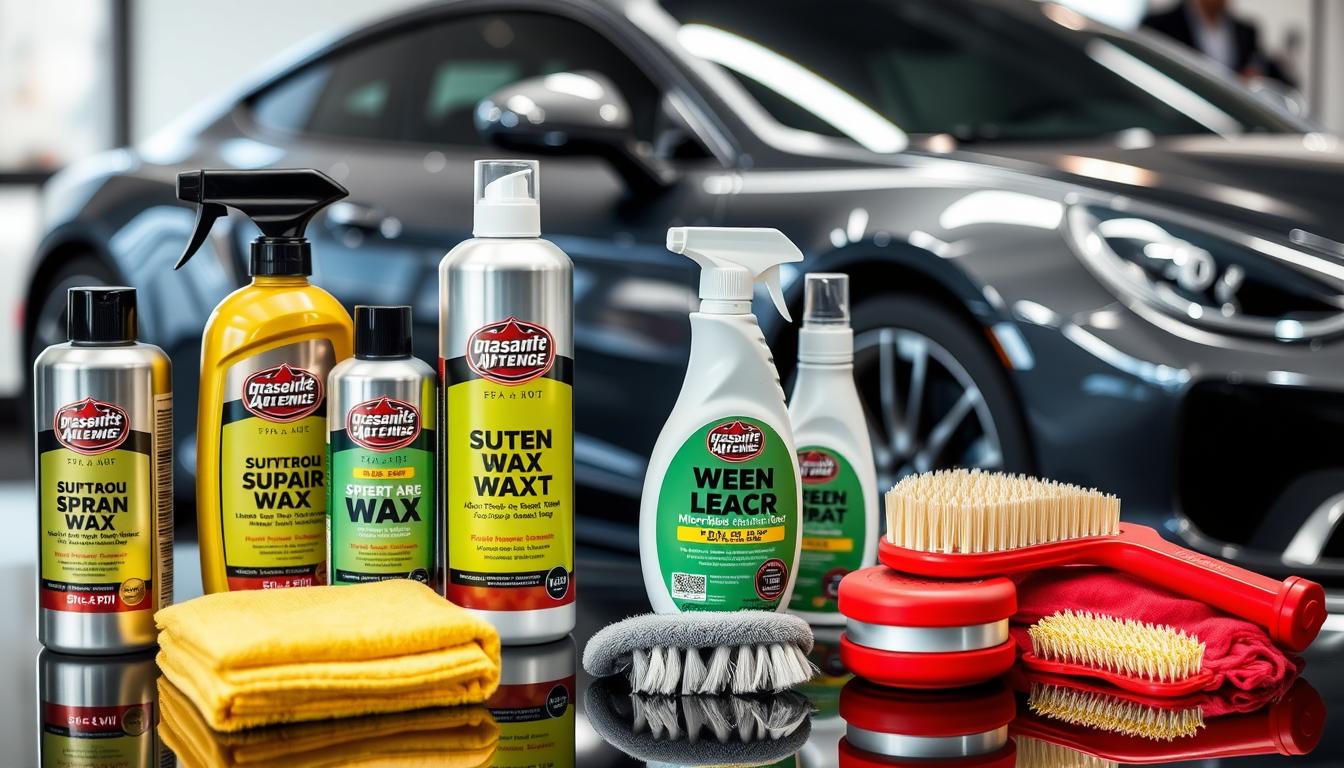Did you know that the air inside your home can be 2-5 times more polluted than the air outside? This is largely due to the accumulation of dust, allergens, and debris within your HVAC system. An air filter is the first line of defense against these pollutants, trapping harmful particles and preventing them from circulating throughout your home.
Your HVAC system works by drawing air in from your home, heating or cooling it, and then returning it. A clean air filter ensures that the air is as clean as possible, directly impacting your family’s health and comfort. We will explore why regular maintenance of your air filter is crucial for maintaining good indoor air quality and overall home maintenance.
Key Takeaways
- Regularly changing your air filter is crucial for maintaining good indoor air quality.
- A clean air filter is essential for the efficient operation of your HVAC system.
- Neglecting air filter maintenance can lead to increased energy costs and potential health issues.
- The frequency of changing air filters depends on various factors, including home size and usage.
- For personalized advice on air filter maintenance, you can reach out to us via WhatsApp at +44-7822010953.
Why Clean Air Filters Matter for Your Home
Air filters are a critical component of your home’s HVAC system, impacting both air quality and system efficiency. They are designed to trap unwanted elements that would otherwise circulate through the air, affecting the health and comfort of your household.
The Hidden Component That Affects Your Whole Home
Often hidden from view within your HVAC system, air filters play a crucial role in maintaining a healthy home environment. They capture a wide range of airborne contaminants, including dust, pollen, dirt, and allergens, preventing them from circulating through your living spaces. For more information on the importance of air filter maintenance, you can visit our related article on the importance of changing air filters.
How Air Filters Work to Protect Your Home
Constructed of woven fiberglass fibers, air filters effectively trap pollutants, keeping the air in your home clean. As air passes through your HVAC system, the filter pulls out unwanted particles, reducing the risk of health concerns for your family. Regularly changing your air filter ensures that your system operates efficiently and that the air quality in your home remains high.
The Importance of Changing Air Filters Regularly
Maintaining clean air filters is a simple yet effective way to improve your home’s air quality and HVAC system’s performance. When your system tries to maintain a comfortable temperature in your home despite having clogged or dirty air filters, it consumes more energy to push the required amount of air through the HVAC system. This not only reduces the system’s efficiency but also increases your energy costs.

Improved Indoor Air Quality and Health Benefits
Regularly changing your air filters leads to significantly improved indoor air quality. This reduces allergens and contaminants that can trigger respiratory issues and allergies. By maintaining clean air filters, you ensure that the air circulating in your home is cleaner and healthier for you and your family.
Enhanced Energy Efficiency and Lower Utility Bills
There’s a direct connection between clean air filters and energy efficiency. Clogged filters force your HVAC system to work harder and consume more energy to maintain comfortable temperatures. By changing your air filters regularly, you can achieve noticeable reductions in your monthly utility bills due to improved efficiency.
- Reduced energy consumption due to less strain on the HVAC system
- Lower utility bills as a result of improved efficiency
- A more comfortable home environment with consistent temperatures
Extended HVAC System Lifespan
Clean air filters contribute to extending the lifespan of your entire HVAC system by reducing unnecessary strain on components and preventing premature wear and tear. A new, clean air filter keeps your HVAC unit running smoother and longer, extending its useful life.
Reduced Repair Frequency and Maintenance Costs
Regular air filter maintenance helps prevent costly repairs by keeping dust and debris from damaging sensitive parts of your heating and cooling system. By changing your air filters often, you can avoid system failures, often at the most inconvenient times like during extreme weather conditions.
Changing air filters is one of the most cost-effective maintenance tasks homeowners can perform themselves, with significant returns on a minimal investment of time and money. By incorporating regular air filter changes into your maintenance routine, you can enjoy a healthier, more energy-efficient home.
How Often Should You Change Your Air Filters?
To keep your home’s air clean and your HVAC system efficient, understanding when to change your air filters is key. The frequency of changing air filters is not a one-size-fits-all solution; it varies based on several factors including pets, allergies, home size, and seasonal changes.
Standard Replacement Guidelines
The general rule of thumb is to change your air filter every four months or with the turn of the seasons. However, this can vary depending on the type of air filter you’re using. For instance, basic fiberglass filters may need to be changed more frequently than high-efficiency pleated filters. For more detailed guidance, you can refer to resources like Home Depot’s air filter replacement guide.
Factors That Affect Replacement Frequency
Several factors can influence how often you should change your air filter. Understanding these can help you tailor a maintenance schedule that suits your home’s specific needs.
Pets and Allergies
If you have pets, you may need to change your air filter more frequently. For homes with a single dog or cat, changing the filter every two months is recommended. If you have multiple pets, you might need to change it as often as every 20 days. Similarly, if anyone in your household suffers from allergies or respiratory conditions like asthma, changing the filter at least monthly is advisable to maintain a healthy indoor environment.
Home Size and Occupancy
The size of your home and the number of occupants also play a significant role in determining how often to change your air filter. For vacation homes or homes with a single occupant and no pets, changing the air filter twice a year might be sufficient. In contrast, homes with multiple occupants may require more frequent changes.
Seasonal Considerations
Seasonal changes can impact your HVAC system’s workload, thereby affecting how often you should change your air filter. During peak heating and cooling seasons, your air filter may become clogged more quickly, necessitating more frequent replacements.

Signs Your Air Filter Needs Changing Now
Regardless of the scheduled replacement time, there are signs that indicate your air filter needs to be changed immediately. These include visible dust accumulation around vents, reduced airflow, and increased energy bills. Regularly inspecting your air filter using the simple light test method can also help determine if it’s time for a replacement. For more tips on maintaining your HVAC system and other home appliances, you might find it useful to explore car maintenance tips that can offer insights into regular maintenance schedules.
Conclusion: Breathe Easier with Regular Air Filter Maintenance
Changing your air filter is a simple yet effective way to ensure a healthier living space. By doing so regularly, you can significantly improve your home’s air quality, enhance energy efficiency, and prolong the lifespan of your HVAC system.
To maintain a healthy home environment, it’s essential to establish a consistent maintenance routine. Consider changing your air filter at the same time each month, such as when you pay your electric bill. This habit can help prevent unnecessary wear on your heating and cooling system, reducing the risk of increased energy costs and poor indoor air quality.
Neglecting air filter maintenance can lead to a buildup of dust and mold, exacerbating allergies and asthma. By staying on top of filter changes, you can breathe easier knowing you’re creating a healthier environment for everyone. For personalized advice, feel free to contact us via WhatsApp at +44-7822010953.


